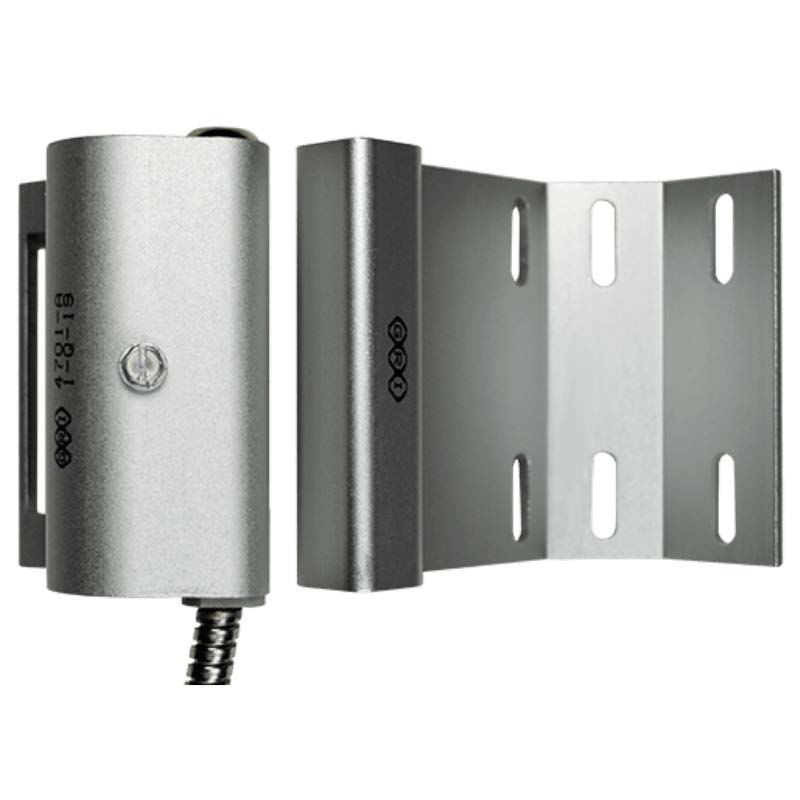Garage Door Sensors Services
Serving Boston, The North Shore, The South Shore, Worcester & Cape Cod Areas
🚪 We’re Open & Ready to Serve You!
Appointments: 8:00 AM - 10:00 PM
📞 Calls answered by a live expert 24/7!
Call NowWhat Our Customers Are Saying About Us
Our customers in Massachusetts trust us to provide exceptional garage door services. Check out what they have to say!
Imagine coming home after a long day, ready to park your car in the garage. You pull up, press the button, and nothing happens. The culprit? Your garage door sensors. When they malfunction, it can lead to frustration and potential hazards.
Garage door sensor issues are common. This is why we’ll explain more about our services related to garage door sensors replacement and repair.

The Principle of Garage Sensors Functioning
Garage door sensors are designed to improve safety. They typically consist of two main components: a sending unit and a receiving unit. The sending unit emits an infrared beam while the receiving side detects that beam.
When everything functions correctly, the door will only close if this invisible path remains clear. If something interrupts the beam, like a car or a pet, the safety sensor sends a signal to reverse the closing action, which prevents accidents and injuries. Sensors are positioned near the ground on both sides of the garage door, ensuring safe operation.
Garage door sensors come in several types, each designed for specific functions. The most common are photoelectric sensors, which use a beam of light to detect objects or people in the garage door’s path. When the beam is interrupted, the system halts operations. This prevents accidents and injuries, which is an essential safety feature for any home.
Another type is pressure-sensitive sensors. They rely on physical pressure instead of light. If something obstructs the door’s path while closing, these sensors can detect resistance and reverse its motion instantly.
Magnetic sensors are also gaining popularity, particularly for security purposes. The magnets communicate with each other when doors open or close, providing an added layer of protection against unauthorized access.

Each sensor type has unique benefits for different needs. If you’re unsure which one to choose, contact our garage door experts.
Contact Us Now For Garage Door Sensors Inspection
If you notice any issues with your garage door sensors or simply want to install new ones, contact us right away. We offer various garage door services, from replacement to sensor alignment. Call us now!
Our Services For Garage Door Sensors
We specialize in a wide range of garage door sensor services. Our team is equipped to tackle everything from installation to repair. Whether you need new sensors or want to fix malfunctioning ones, we have you covered. With us, you can expect prompt response times and quality workmanship.
Fixing Sensors
Fixing garage door sensors is necessary if you notice any malfunctions in their operation. The first step is to identify the problem. It can be something as simple as a power outage, in which case you need to plug them back in or wait for the electricity to be restored. Other common issues include misalignment or dirt obstructing the sensor’s path. A quick inspection can reveal if anything is blocking the sensors’ line of sight.
If you notice that the dirt is an issue, you should clean the lenses with a soft cloth. It removes dust and debris that could hinder performance.
Sometimes, wiring problems arise, too. You can check for loose connections or damaged sensor wires, which can help diagnose deeper issues. In this case, we advise calling garage door repair technicians. We will come as quickly as possible, diagnose the issue, and provide you with the cost of the repair.
Replacing Broken Sensors
Suppose your sensors are beyond the fixing stage. This is when you need replacement garage door sensors. At Garage Door Experts & Co, we offer professional replacement services.
First, we’ll identify the type of sensor you have installed. Different models may require specific replacement sensor parts. Once we have the right components, we can continue with the process.
Next, we’ll disconnect power from the garage door opener to ensure safety while handling electrical components. Once powered down, we’ll remove the faulty sensor by unscrewing it from its mount.

This is the time to install the new sensor and secure it properly. After everything is tightened up, we’ll reconnect power and test functionality. If everything is aligned properly, your new sensor will have its LED light indicator green.
Aligning Sensors
If misaligned, automatic garage door sensors may fail to work properly, which can cause serious damage or injury. If you suspect an issue with alignment, give us a call. We’ll inspect both sensors. They should face each other directly, with no obstructions in between. A slight angle can disrupt their connection and cause malfunctions. In this case, we’ll work on adjusting garage door sensors brackets gently until they are level and parallel.
It’s important to have the proper hardware, including the right screwdriver. Once we finish the garage door sensors alignment, we’ll test the system several times to ensure it responds correctly. When everything is in order, you’ll see green lights on both sensors.
Installing Sensors
At Garage Door Experts & Co, we specialize in professional garage door sensor installation services. Our experienced technicians are trained to install sensors with precision and calibrate them for optimal performance to meet industry safety standards.
In addition to installation, we provide full support, from consultation to maintenance. Whether you’re upgrading your current system or installing sensors for the first time, we guarantee an easy process that minimizes downtime.
Preventative Garage Door Sensor Maintenance
You need preventative maintenance to ensure that sensors function correctly and efficiently. Regular checks by our professionals can help you avoid unexpected repairs. We’ll start by cleaning the sensor lenses to remove dust or debris that could obstruct their operation.
Next, we’ll inspect the wiring for any signs of wear or damage. Frayed wires can lead to malfunctions, so we need to ensure that everything is in order. Tightening loose screws on both the sensors and brackets is another quick task that enhances stability.
You can also regularly test your garage door’s response when objects pass through its path. This ensures that the sensors are detecting properly and sending signals as intended. If you experience issues during testing, reach out for professional assistance.

